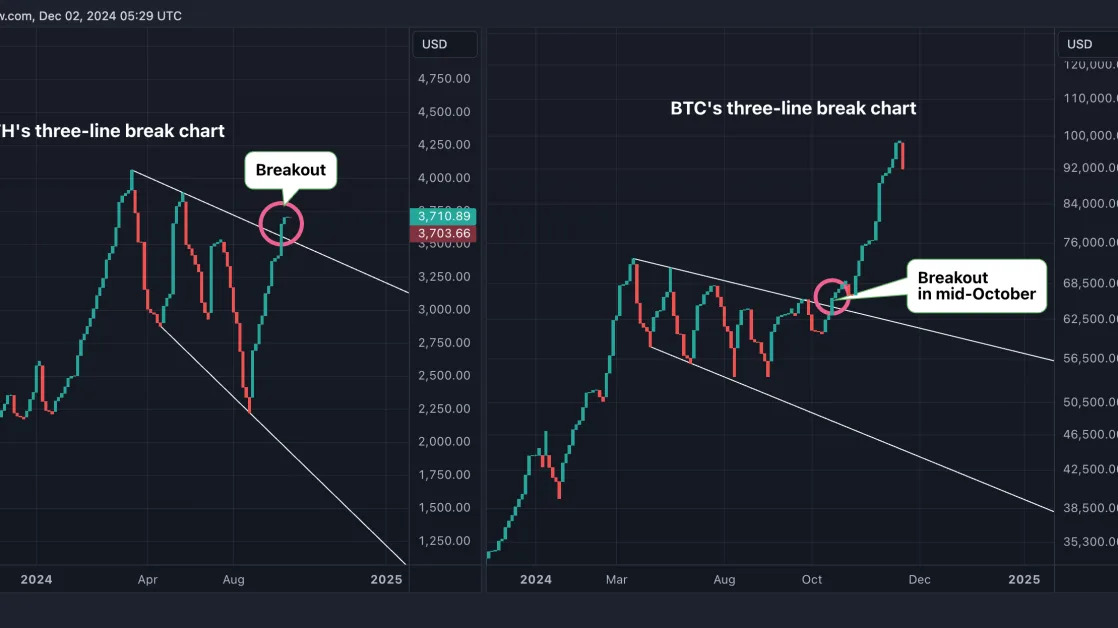By Michael S. Derby
(Reuters) -Federal Reserve Bank of Chicago President Austan Goolsbee said on Friday monetary policy is quite tight and is no longer aligned with current economic conditions, although he declined to provide specific guidance on what lies ahead for it.
"I usually don't like saying, tying our hands before a meeting, but I've been saying for some time, if you take the level of tightness" now seen in the Fed's interest rate target, "you only want to be that tight on purpose if you're trying to cool an overheating economy, and this is not overheating," Goolsbee said in a CNBC interview.
Goolsbee spoke on the cable television network after a speech earlier in the day from Fed Chairman Jerome Powell, who clearly signaled the time of Fed rate cuts is fast arriving amid falling inflation pressures and rising risks to the job market.
Financial markets broadly expect a quarter percentage point cut in what is now a 5.25% to 5.5% federal funds rate next month, and some believe it could be half percentage point move if August job data, to be released in early September, shows unexpected levels of weakness.
As Goolsbee hinted he's likely down for rate cuts, he also noted "by almost all measures, the job market is cooling" as inflation continues to move back to 2%, a level he believes is achievable. Goolsbee also said there are "warning lights" in parts of the jobs market.
In a separate interview with Bloomberg's television channel, Goolsbee noted that central bank forecasts released in June clearly showed the path officials favored then was toward lower rates, and nothing that's happened since then argues against that outlook.
"What will warrant the speed at which we cut rates, or how much we pause on the cutting, will be determined by how "the economy performs, Goolsbee said.
He also argued against getting hung up about the tactics of easing, saying "I don't think it makes sense to get into a big debate" over 25 basis points versus 50 basis points, saying "little gradations like that aren't what matters the most. What matters the most" is the longer-run path of policy.
Goolsbee also said Powell's comments on the rate outlook "seemed pretty definitive."





